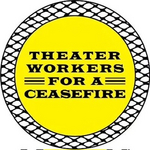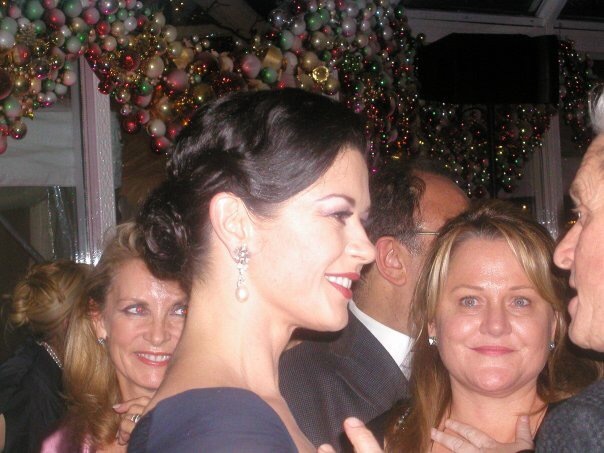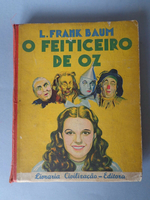How much money do investors give?
#1How much money do investors give?
Posted: 10/20/17 at 9:39am
Are there statistics on the amount of money investors put into shows? like what is the average amount an individual investor gives? And how many investors can there be on a single show?
#2How much money do investors give?
Posted: 10/20/17 at 10:02am
From what I understand, it's completely up to the lead producer(s). I have a friend who invests from time to time. She's told me that some shows require a minimum of only $10,000 while others offer minimal units of $25-50,000. Some permit the splitting of units, some don't. Some may even require larger investments but those are above her pay grade.
#3How much money do investors give?
Posted: 10/20/17 at 10:11am
There is a minimum 'buy in' amount that is set by the producers. Hypothetically, there isn't a cap to what a producer can invest, though the subscription documents they sign essentially have them swear that their income (and disposable income) warrants the investment. Essentially every page an investor signs in their investment document states in bold - "this is high risk and you will probably lose 100 percent of your investment"
For convenience sake more than anything, obviously a lead producer wants to have as few investors as possible. So, they do tend to prioritize those investors who are putting in higher dollar amounts
#4How much money do investors give?
Posted: 10/20/17 at 10:36am
Average is meaningless since one $5mil investment skews the average. Perhaps you meant median, but there again, there is no meaningful answer. Some shows rely on a very small group, some dip down into quite small (low 5 figures) for much of the funding, and some have a relatively high number of people investing moderate amounts. Why are you asking? If you want to know if it might be possible for you to invest in a show, ask the direct question based on how much you would not be averse to losing. It is also true, incidentally, that there is usually a correlation between how much of a sure thing something is coming in (e.g., Hamilton), and how much a producer will set as a floor.
#5How much money do investors give?
Posted: 10/20/17 at 10:55am
I was asking, because someone on another thread joked about how producers would just ask for 500,000 dollars. I thought that was a staggering amount, but I guess it might be more common than I thought it would. Thanks for the replies
JSquared2
Broadway Legend Joined: 3/23/17
#6How much money do investors give?
Posted: 10/20/17 at 11:00am
If it's a Ken Davenport production, he'll take a $25 Starbucks gifts card.
#7How much money do investors give?
Posted: 10/20/17 at 11:00am
$500,000 is actually probably a fairly common investment amount. Especially when you consider that a show like Natasha Pierre (as example) had budget of over $14 million dollars.
#8How much money do investors give?
Posted: 10/20/17 at 11:36am
QueenAlice said:: "Essentially every page an investor signs in their investment document states in bold - "this is high risk and you will probably lose 100 percent of your investment"
That's complete BS. I've reviewed many of these for my friend who I mentioned previously, and NONE of them contain that language. There is always a section about the nature of the risk (certainly not mentioned on every page, let alone in bold type. Here is the standard language:
"By executing this Agreement, each Investing Member covenants, represents and warrants to the Managing Member the following, with full knowledge that the Managing Member intends to rely on the following:
Recognizes that an investment in the Company carries with it a high level of risk and a significant possibility of loss of the entire investment, has no need for liquidity of the investment in the Company, is able to bear the economic risk of the investment in the Company, and can afford a complete loss of the investment without adversely affecting his, her or its standard of living; "
Alex Kulak2
Broadway Legend Joined: 9/11/16
#9How much money do investors give?
Posted: 10/20/17 at 11:46am
I have a question too. Is it like on Shark Tank, where you give the investment, and you get a certain percentage equity? Is that number set by the producers, or is that negotiated with the investors?
#10How much money do investors give?
Posted: 10/20/17 at 11:57am
It is not like Shark Tank. Producer files an offering at a stated capitalization (or it can be a range) and the equity interest is a percentage with the investment as the numerator and the amount capitalized as the denominator. There can be situations in which someone is offered additional points from the producer side, but that does not affect the "deal" for investors.
#11How much money do investors give?
Posted: 10/20/17 at 11:58am
Raised on musicals -I said "essentially" - not literally. My point being that the documents the investors sign spell out clearly that it is high risk investment.
Alex Kulak2
Broadway Legend Joined: 9/11/16
#12How much money do investors give?
Posted: 10/20/17 at 12:06pm
It is not like Shark Tank. Producer files an offering at a stated capitalization (or it can be a range) and the equity interest is a percentage with the investment as the numerator and the amount capitalized as the denominator. There can be situations in which someone is offered additional points from the producer side, but that does not affect the "deal" for investors.
Thank you for finally making The Producers make sense for me.
#13How much money do investors give?
Posted: 10/20/17 at 12:37pm
QueenAlice said: "Raised on musicals -I said "essentially" - not literally. My point being that the documents the investors sign spell out clearly that it is high risk investment."
This is true. Sorry that I didn't recognize the extent to which you were using hyperbole. But there's a big difference between saying that an investor will "probably" lose their entire investment and pointing out that there is a significant possibility of that happening.
My friend tells me that she started investing in 2009, and that she's lost her entire investment several times, and in that time she's invested in one big hit. But what she told me is that she has learned to choose her investments much more carefully and is much more aware of things to look at that either increase or decrease the risk. As a result, she's passed on many shows in the last few years that have turned out to be flops.
As an aside, the first show she invested in won the Tony for Best Revival of a Play and she lost her entire investment.
#14How much money do investors give?
Posted: 10/20/17 at 12:50pm
Honestly, I think most people who invest in Broadway shows do it because they like being able to tell their friends they are involved with a Broadway show, they like being able to attend opening night, have access to house seats etc. For those with disposable income, it's like membership to a fun club - for however long it lasts. I've never heard of anyone investing in a Broadway show because they thought they would make money from it. And as has been pointed out - things like HELLO DOLLY and HAMILTON usually have very limited investor opportunities because (I believe) lead producers like to use those "more likely to succeed" projects to reward people who have been long time investors on other projects.
Liza's Headband
Broadway Legend Joined: 5/28/13
#15How much money do investors give?
Posted: 10/20/17 at 1:25pm
QueenAlice said: "Honestly, I think most people who invest in Broadway shows do it because they like being able to tell their friends they are involved with a Broadway show, they like being able to attend opening night, have access to house seats etc. For those with disposable income, it's like membership to a fun club - for however long it lasts. I've never heard of anyone investing in a Broadway show because they thought they would make money from it. And as has been pointed out - things like HELLO DOLLY and HAMILTON usually have very limited investor opportunities because (I believe) lead producers like to use those "more likely to succeed"projects to reward people who have been long time investorson other projects."
Wildly inaccurate generalizations are always fun!
#16How much money do investors give?
Posted: 10/20/17 at 1:31pm
Alright Liza - why don't you enlighten us. Outside of a tax write off, and the social perks of being an investor in a Broadway show - what are the reasons people invest?
#17How much money do investors give?
Posted: 10/20/17 at 1:37pm
My one shirttail experience with being an "angel" (as investors were long ago referred to) was in 1979 with a musical entitled The Utter Glory of Morrissey Hall. It started Celeste Holm.
Two things: Although I can't recall how much the minimum investment was, it was rather modest to say the least; and yes - I did think I was going to make money as a result of it. I later had second thoughts, however.
The show closed after one performance.
#18How much money do investors give?
Posted: 10/20/17 at 1:41pm
I hope you got the t-shirt, Marky. That one must have been a doozy.
And sure, I imagine there are some first time investors who have stars in their eyes about making money - but I'm principally talking about those who continually invest in theatrical productions. These people know the risk, and I maintain have other reasons for investing other than striking it rich.
VintageSnarker
Broadway Legend Joined: 1/30/15
#19How much money do investors give?
Posted: 10/20/17 at 1:44pm
JSquared2 said: "If it's a Ken Davenport production, he'll take a $25 Starbucks gifts card."
Lol. I think his Godspell took 4 figures from individual investors.
JSquared2
Broadway Legend Joined: 3/23/17
#20How much money do investors give?
Posted: 10/20/17 at 1:44pm
QueenAlice said: "Honestly, I think most people who invest in Broadway shows do it because they like being able to tell their friends they are involved with a Broadway show, they like being able to attend opening night, have access to house seats etc. For those with disposable income, it's like membership to a fun club - for however long it lasts. I've never heard of anyone investing in a Broadway show because they thought they would make money from it. And as has been pointed out - things like HELLO DOLLY and HAMILTON usually have very limited investor opportunities because (I believe) lead producers like to use those "more likely to succeed"projects to reward people who have been long time investorson other projects."
Absolutely right. Ignore Liza --- as usual he doesn't know what he's talking about.
#21How much money do investors give?
Posted: 10/20/17 at 1:47pm
No, no T-shirt; all I have left are the Playbill, the prospectus... and the reviews...
#22How much money do investors give?
Posted: 10/20/17 at 1:53pm
Did you actually see the production? Any anecdotes about seeing it?
#23How much money do investors give?
Posted: 10/20/17 at 2:06pm
Let me just say that for anyone who seeks an introduction to the show itself, there is an original cast recording still available; I believe.
#24How much money do investors give?
Posted: 10/20/17 at 2:16pm
Ohhhh my favorite topic! (AKA the only one I know something about)
To go back to the OP's question, producers often set official 'minimums', that are typically $10k for a broadway play and $25k for a musical. Sometimes, if something is expected to be a bit hit, you'll be capped at what you can invest too, based on your relationship with the producer / how early you sign on. I had heard that board members of The Public were generally 'allowed' to invest no more than $25-50k each in Hamilton, where as a show like Gentleman's Guide would have been happy to accept a few million
Now, this is if you invest directly with the producers (aka are signing the subscription documents). My very first investment was only $2,500 by using a special purpose partnership (lets call it in this case I Want To Invest In Shows series A, LLC), which bundled investments until it had $25,000, and then that LLC became an investor in the show. This is more common than you might think, as people even with bigger checks often do this to get higher perks.
As far as negotiating goes; most shows have a 'favored nation clause' that prevents an investors from individually negotiating, because the producer would then have to go back and offer every other investors terms at least as good as every successive investor. That said, there is room for some negotiating with what share of a producer's cut an individual investor or group of investors can receive if they come in with a big enough check (talking $1mm+ here). The things they negotiate might be getting their name above the title, receiving 'off the top' profits, torchbearing points for providing front money, etc. But there is no negotiating as far as "I want 10% of the show for my investment".
Lastly, as an anecdote, I know many investors and co producers who simply do it to go to the party and take some pictures and be in the room where it happens. That said, I've invested in 5 shows and each of them have recouped. Not that I'm any sort of sharp eye, I think I've mostly gotten lucky. But all of the people I invest with are also looking to make money :)
vampire musical
Stand-by Joined: 6/25/14
#25How much money do investors give?
Posted: 10/20/17 at 4:52pm
Liza's Headband said: "QueenAlice said: "Honestly, I think most people who invest in Broadway shows do it because they like being able to tell their friends they are involved with a Broadway show, they like being able to attend opening night, have access to house seats etc. For those with disposable income, it's like membership to a fun club - for however long it lasts. I've never heard of anyone investing in a Broadway show because they thought they would make money from it. And as has been pointed out - things like HELLO DOLLY and HAMILTON usually have very limited investor opportunities because (I believe) lead producers like to use those "more likely to succeed"projects to reward people who have been long time investorson other projects."
Wildly inaccurate generalizations are always fun!"
QueenAlice is actually pretty dead on accurate. Of all the investors I know, any one who expected to make big money learns pretty fast that is not the norm on Broadway. The key to happy investing is treating this as fun money. Sure you could walk into a casino one day with $100 and walk out with $10,000 in winnings, but that doesn't mean it'll happen every time. Sure, your first investment could be Wicked, but very few shows have returns anywhere near Wicked's numbers let alone recoup. Plus, when you are a new investor, unless you have deep pockets and big connections, coming in as a novice you will likely end up investing on shows that are struggling to raise capital. Sometimes that works out. GGLAM is one good struggle-to-success example, but most of the time it's a loss.
The long-lasting investors I know spread around their investments to minimize risk as much as possible. Put a little in several shows each season and maybe MAYBE one will eventually hit and offset losses on the others.
Regarding "saving good shows to reward loyal investors." TOTALLY TRUE. A big chunk of the chosen investors who got in on Hamilton LOST money on that Sting musical Last Ship, which Jeffrey Seller produced as well.
Videos






